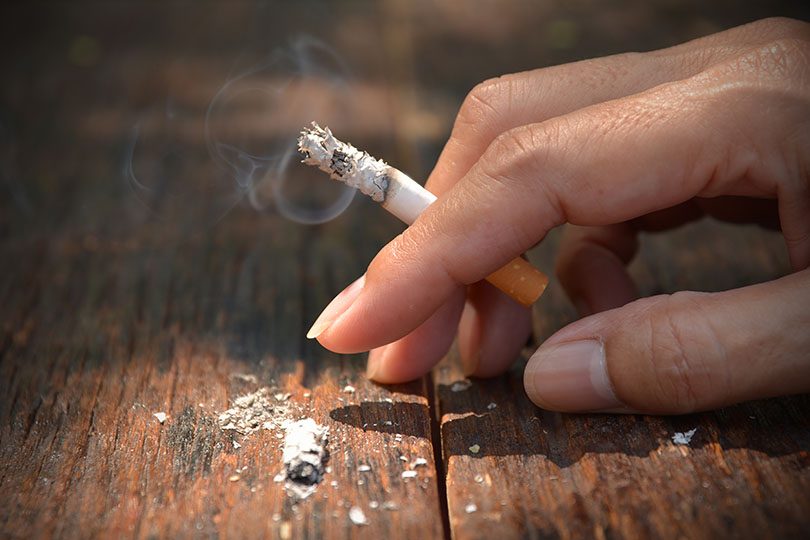You always hear “smoking is bad for you.” Well, that’s true. How bad really is it, though?
“Contrary to popular belief, smoking harms much more than the lungs. It can cause cancer almost anywhere in the body,” said Christine O’Meara, director of the Georgia Cancer Center’s Office of Cancer Information and Awareness. “In addition to lung cancer, there are at least 13 other cancers that result from smoking.”
These cancers include:
- Laryngeal
- Blood
- Bladder
- Cervical
- Colon and rectal
- Esophageal
- Kidney and ureteral
- Liver
- Mouth and throat
- Pancreatic
- Stomach
- Tracheal and bronchial
Smokeless or spit tobacco users have greater risks for the following cancers:
- Esophageal
- Mouth (tongue, gums, roof of mouth)
- Lip
- Throat
- Pancreatic
Nearly half the deaths from these cancers combined are linked to smoking. Smoking is the culprit of 90% of lung cancer deaths in men and 80% of lung cancer deaths in women, according to the American Lung Association. 77% of laryngeal cancer deaths are attributable to smoking. Throat, esophageal and bladder cancers are not far behind, with more than a half of bladder cancers due to smoking.
How do tobacco products cause these cancers?
Smoking increases inflammation in the body. Tobacco products contain thousands of chemicals, many of which damage DNA and 69 of which are known to cause cancer. When tobacco is smoked, snuffed or chewed, these chemicals are absorbed into the bloodstream and carried to every organ in the body. DNA damage can cause cell mutations and impaired cell functioning, which causes cells to grow uncontrollably. Cancer is defined as uncontrolled cell growth.
Tobacco use and exposure to tobacco smoke causes approximately 480,000 deaths in the US each year, from cancer, stroke and the many other associated diseases, according to the CDC.
Since smoking is one of the leading causes of premature, preventable death in the US, we know these deaths can potentially be prevented. How? First, just don’t use tobacco in any form! If you do smoke, quit! Regular, recommended screenings for cancers are essential for early detection. “Detecting cancer early is extremely important,” said O’Meara. “The sooner it is discovered and treated, the better chance of survival in many cases.”
The only real way to prevent the risks from smoking is by not smoking and by avoiding secondhand smoke. The benefit is greater the earlier you quit, but there will always be health benefits after quitting. Some immediate health benefits include lower heart rate, blood pressure and carbon monoxide levels in your blood. Some long-term health benefits include reduced risk of cancer and many other diseases, like heart disease, stroke and diabetes.
“Former tobacco users can further reduce their risk of cancers associated with smoking by exercising and putting their lungs to work, maintaining a healthy weight and eating a diet rich in fresh fruits, vegetables and whole grains, while reducing the consumption of red meats and processed meats,” said O’Meara.
It’s never too late to quit tobacco
It is never too late to quit using tobacco, even if you are diagnosed with cancer. Cancer patients who smoke can improve their prognosis by quitting. Not smoking helps the body heal and respond to therapy properly. It can even help prevent cancer relapses.
Smoking not only harms the smoker! Secondhand smoke is a carcinogen (cancer-causing agent) that causes disease and death in thousands of non-smoking American children and adults each year. Cancer.gov reported that exposure to secondhand smoke causes approximately 7,300 lung cancer deaths each year among adult non-smokers in the U.S.
Bottom line: Tobacco is harmful and addictive, and there are no safe tobacco products. It is never too late to quit smoking, but the sooner, the better!
The Georgia Cancer Center offers cessation classes that are designed to help you develop a quit plan and gain skills to cope with nicotine addiction and tobacco-use habits. The classes are available for individuals 18 years of age or older and will help you achieve your quit goals and a healthier lifestyle.





